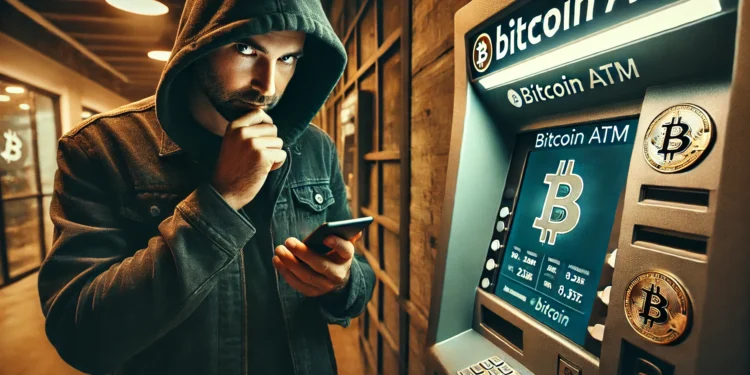- Bitcoin ATM scams have seen a significant increase, costing consumers over $110 million in 2023.
- Elderly consumers are particularly vulnerable, being three times more likely to fall victim to such scams.
- The FTC and Bitcoin Depot emphasize the importance of consumer education and caution when using Bitcoin ATMs.
The growth of cryptocurrency use in the United States has unfortunately been accompanied by a rise in related scams, particularly through Bitcoin ATMs. According to the latest report from the Federal Trade Commission (FTC), incidents of fraud involving these machines have soared by ten times since 2020, highlighting a growing trend of exploitation by fraudsters who take advantage of the anonymity and swift nature of cryptocurrency transactions.
Rise in Fraudulent Activities
The FTC’s findings indicate that in 2023 alone, Americans lost upwards of $110 million to these scams, a staggering figure that underscores the seriousness of the threat. Bitcoin ATMs have become a popular tool among scammers, who often deceive their victims into sending money under various false pretenses. Typically, these scams involve convincing individuals that they owe money to a supposed authority or need to transfer funds to secure a financial return.
Older adults, particularly those aged 60 and above, are the most affected group, finding themselves three times more likely to be scammed compared to other age groups. This vulnerability is particularly concerning given the increasing number of older Americans becoming active in the digital currency space.
Industry Response and Consumer Safeguards
In response to the escalating scam activities, Bitcoin Depot, an operator of Bitcoin ATMs, has taken proactive steps to combat these fraudulent schemes. The company has implemented visible scam warnings on its kiosks and incorporated cautionary messages in the user interface to alert consumers to the risks of sending money to unverified parties.
A spokesperson from Bitcoin Depot emphasized the importance of these measures to Cointelegraph, stating, “Our goal is to ensure that our customers are fully informed of the potential risks and are reminded never to send cryptocurrency to unknown wallets or individuals without thorough verification.”
Regulatory Efforts and Recommendations
As part of broader efforts to safeguard consumers, local governments are also stepping in. For instance, in Chico, California, officials are discussing regulations that would treat Bitcoin ATMs with the same scrutiny as traditional banking institutions. Andy Pickett, a county administrative officer, noted the need for local ordinances to effectively manage these services, acknowledging potential legal challenges but stressing the importance of regulatory oversight.
The FTC, for its part, continues to urge the public to exercise extreme caution. The agency advises against sending cryptocurrency via ATMs for payments or transactions directed by unfamiliar parties and suggests consulting with trusted financial advisors before making significant financial decisions involving crypto-assets.














